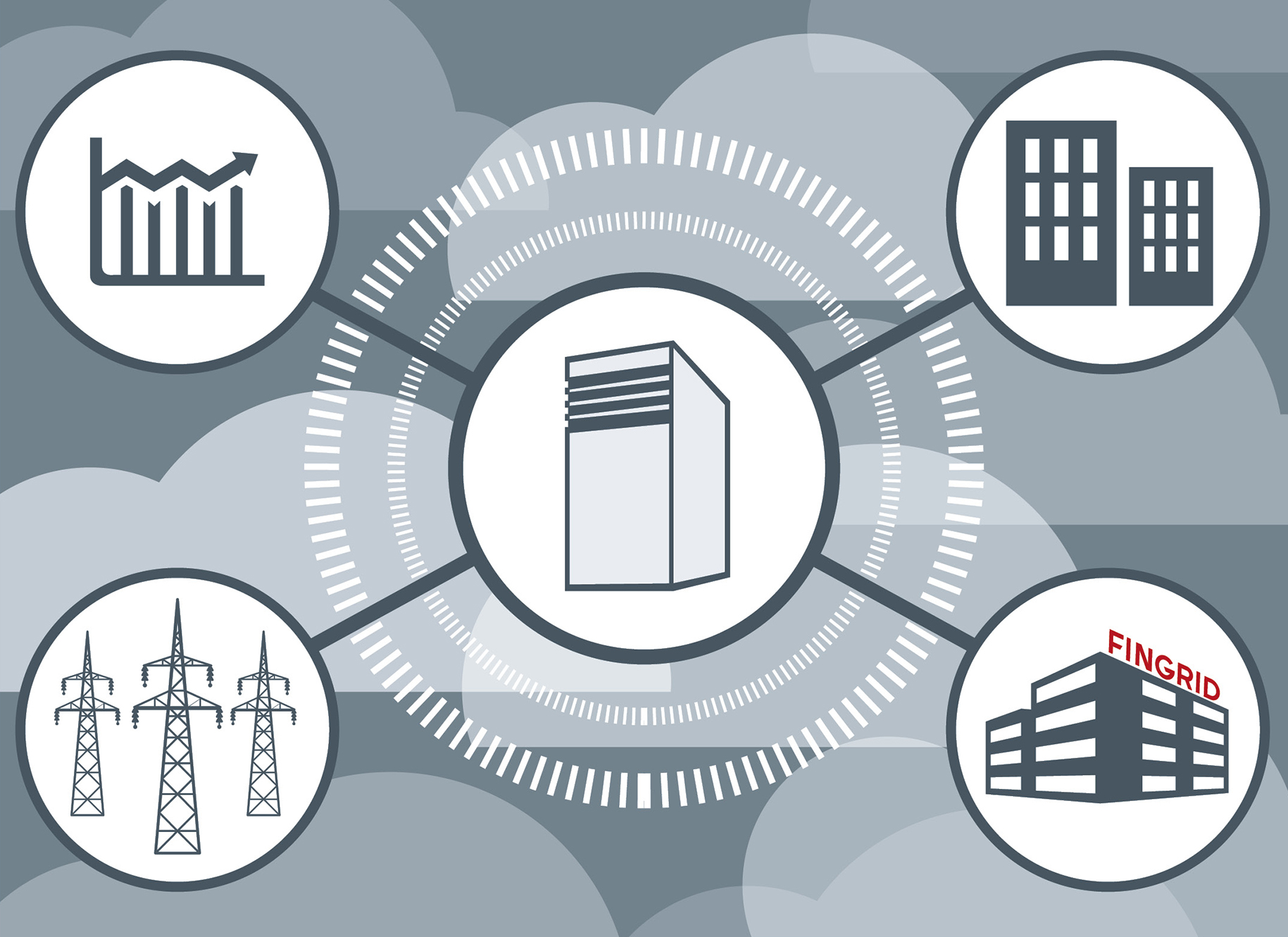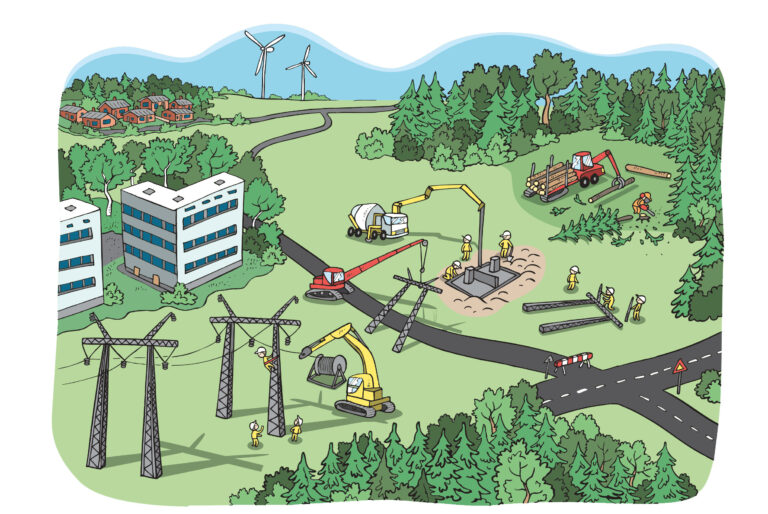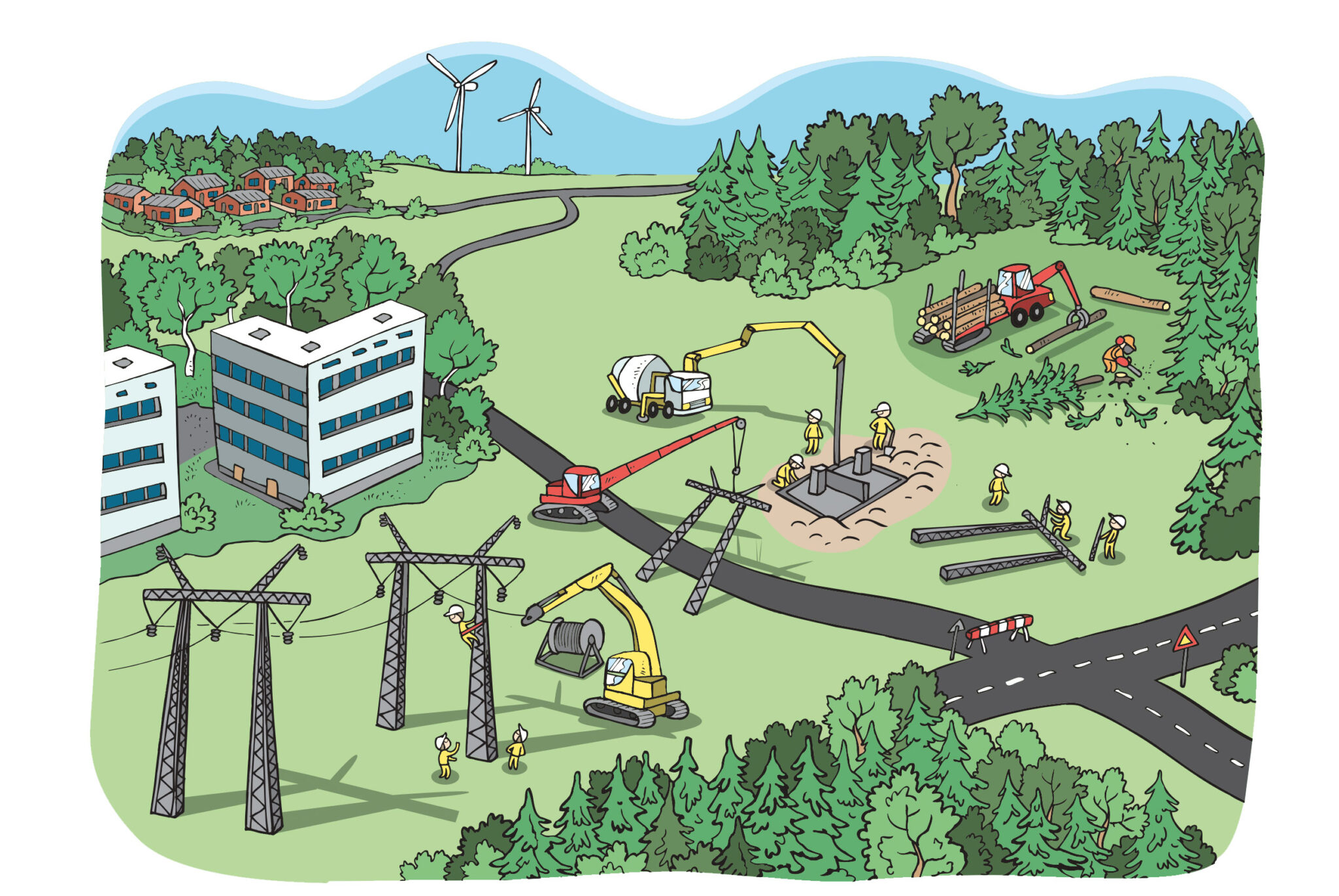Fingrid is currently building a datahub for electricity market information exchange, which will contain the information for all electricity users in Finland. “Construction of the system means a lot of work and a big change for Fingrid and the entire industry, but we expect it to provide new opportunities for the electricity market,” says Service Manager Minna Arffman from Fingrid Datahub Oy.
“A centralised information exchange model makes business processes more efficient and allows us to develop information exchange in completely new ways. The rules will be simpler and information quality will improve.”
Information is currently forwarded between individual companies. This system is satisfactory, but it has limited development possibilities. The electricity market is being transformed in other ways as well, and information exchange will change with it.
Data cleaning is underway in electricity companies
The preparation phase also involves a lot of work for industry companies. Before data can be transferred to datahub, the companies have to review all the information in their own systems. The companies must check whether they have all the necessary data and whether it is correct.
“The process of cleaning and supplementing data has already begun in many companies. If necessary, Fingrid will provide assistance, for example, with compiling key messages for consumers.”
“The change is a huge effort for all industry companies and we want to support them in customer communications,” explains Arffman.
The aim is for datahub to be invisible to end customers. Consumers will not deal directly with datahub, which is a background information exchange system that end customers will only notice as better customer service and possibly new services. Consumers will access their own information via the Suomi.fi service.
Why is a personal ID needed?
The benefits of datahub are based on being able to check and use information for different purposes. It is absolutely essential for the system’s data protection to be at the proper level. Customer data may not be released from datahub without specific authorisation.
Information can only be retrieved by a party with rights to the information in datahub.
The method for identifying customer information is the personal ID for consumer customers and the business ID for companies. Customers may not have provided their personal IDs when making electricity agreements, and companies have had to request them. This has naturally caused some confusion because people believe that giving out personal IDs can involve some risks.
Strong and reliable customer identification is a prerequisite for datahub and the related new services.
“It must be possible to reliably identify the customer when using datahub’s functional features. Otherwise, there is the risk of mistakes when dealing with so much data and so many users,” clarifies Arffman.
The work of a large group
The Ministry of Economic Affairs and Employment asked Fingrid to implement datahub. The project is being prepared in close cooperation with electricity suppliers, distribution system operators, system suppliers, various interest groups and authorities.
Datahub has attracted a lot of interest, and Fingrid has focused on project communications. The EDIEL.fi website contains a wide range of information about the project.
“We send a newsletter to all interested parties at least once a month. We also hold various theme webinars, and current events webinars will begin in 2018. The idea for them came from customer feedback,” mentions Arffman.
The datahub system supplier will be selected during the spring or summer of 2018. The overall schedule will be specified after this.
“We hope that industry operators will continue to actively contact us. This is above all a project of the entire industry.” •







